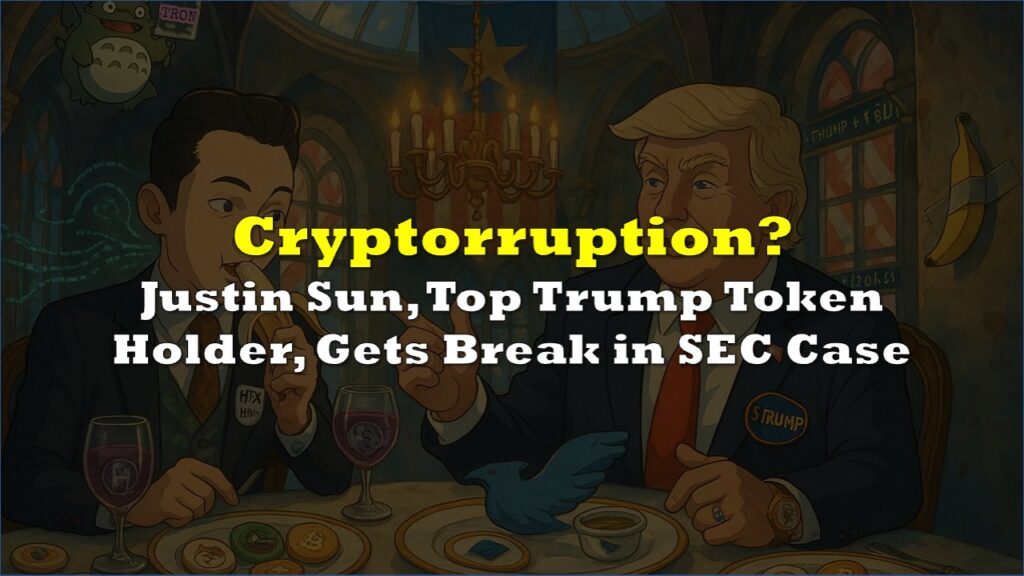Newly released data indicates that firms associated with Tron founder Justin Sun have experienced significant losses, totaling hundreds of millions of dollars in altcoins over the past 20 days. According to blockchain tracker Lookonchain, a series of five major hacks occurred during this period, resulting in the theft of approximately $290 million.
Two of the affected protocols, namely the crypto exchange HTX (formerly known as Huobi) and Heco Bridge—a platform facilitating the movement of funds between Ethereum (ETH) and the energy-efficient blockchain Heco Chain—are linked to Sun, the current proprietor of the Poloniex digital assets exchange.
Cybersecurity firm Cyvers reported that the combined losses from these hacks amounted to $100 million, with $86 million being attributed to the Heco Bridge incident. Cyvers highlighted suspicious transactions involving the conversion of Heco Chain assets to ETH, distributed to various externally owned accounts.
Regarding the HTX hack, Cyvers explained, “Two hot wallets of HTX Global have been impacted… Hacker has distributed all the assets to different EOAs with 1 ETH for gas fee per each address.”
In response to these security breaches, Sun assured the community that all HTX customer funds remain secure, though deposits and withdrawals will be temporarily suspended until the specific reasons for the hacks are identified. Sun stated, “HTX will fully compensate for HTX’s hot wallet losses.”
Justin Sun, the TRON founder, is launching an airdrop to Poloniex and HTX users after the security breaches. He wants to support those who suffered.
— Titze Raymond (@RaymondTit29081) November 25, 2023
Despite the challenges, the HTX crypto exchange has successfully restored deposits and withdrawals for Bitcoin, and Sun announced plans to gradually restore functionalities for other crypto assets. He expressed confidence in completing the restoration process by the following week.
Sun acknowledged the inconvenience caused to users and apologized while thanking them for their patience. He promised to keep the community informed about the ongoing progress of the exchange’s activities.
But the resolution doesn’t discount the uncertainty posed by the series of events. HTX users are reportedly being kept in suspense by support, indicating potential insolvency or another significant issue. Poloniex appears to be facing a severe drain, TRX appears to be experiencing excessive wash trading to artificially maintain its value, and customers who criticize Sun are reportedly being blocked by him.
⚠️⛔️🚨 #HTX users getting strung along by support. They’re either insolvent or something else seriously wrong.
— Rho Rider (@RhoRider) November 25, 2023
Poloniex seems completely drained.$TRX getting wash traded like crazy to keep it propped up
Justin Sun is blocking customers calling him out
☢️ meltdown pic.twitter.com/neq1qSwRHT
$7.3M locked on @HTX_Global
— DECIMATED – Official (@decimated_game) November 24, 2023
No response to legal action.@justinsuntron blocked us on Linkedin.@EdwardHBGSG blocked us on Twitter.
We have been contacted by several other companies who have had $200k, 800k, $10M and $24M locked.
🚨🚨🚨🚨⚠️⚠️⚠️⚠️
— Rho Rider (@RhoRider) November 25, 2023
2 days after they said "#HTX withdrawals will resume in 24 hours", only $TRX has been allowed to escape (+one random $BTC transactions)
Everyone else is still trapped on #HTX & #Poloniex rn following hundreds of millions in hacks. Justin Sun is exit scamming. https://t.co/Ra8BQaEDGP pic.twitter.com/lZfEi4AULY
Meanwhile, Poloniex staff in China have reportedly been let go following the incident, although this hasn’t been confirmed by the firm.
🚨 Breaking News 🚨
— Owen Healy (Poloniex / Justin Sun Victim) (@OwenBlockchain) November 22, 2023
I've just been informed that #Poloniex have fired its remaining staff in China today
Plan is to eventually abandon the exchange
This is a very reliable source and I wouldn't be sharing it otherwise (ex-Chinese employee)@Poloniex @justinsuntron #justinsun
HTX fraud allegations
Notably, the HTX hack marked the fourth attack in two months on crypto platforms associated with Justin Sun. The hacking trend prompted crypto analytics platform Whalewire to scrutinize the situation, suggesting a potential exit scam by Sun. While Sun insists on attributing the incidents to hacks, Whalewire speculated otherwise, alleging insider exit scams facilitated by pre-existing backdoors.
The recent spate of security breaches includes the November 10 hack of Poloniex, owned by Sun, resulting in a $100 million loss. CertiK, a blockchain security company, attributed the exploit to a compromised private key. The HTX exchange also suffered an attack on September 24, shortly after its rebranding from Huobi, resulting in an $8 million loss.
Recent days have seen a surge of allegations circulating online against the cryptocurrency exchange HTX, with accusations of potential fraudulent activities. While there is currently no confirmed evidence supporting these claims, multiple allegations have surfaced.
The online game Decimated has released a detailed account of what it alleges to have transpired. Last October, they announced a partnership between FractureLabs and Huobi. However, Decimated now asserts encountering difficulties in withdrawing funds from their Huobi account, prompting them to seek legal advice. Community members have been encouraged to share relevant information, particularly regarding withdrawal issues on Huobi.
We had announced on 31 October 2022 the continued partnership between FractureLabs and Huobi.
— DECIMATED – Official (@decimated_game) April 14, 2023
Due to revelations that have come to light, FractureLabs has been trying to engage Huobi in respect of the operations of its account and its assets held with Huobi.
As a result of our… pic.twitter.com/5jXJqyZEhK
Decimated CEO Stephen Arnold disclosed on LinkedIn that HTX, acquired by About Capital Management, has reportedly blocked approximately $5.8 million of their funds. Arnold alleges a violation of a settlement agreement and claims that attempts at arbitration and communication with HTX have gone unanswered since January 2023. Similar situations involving blocked funds or litigation, ranging from $200,000 to $24 million, are also reported.
Thomson Reuters senior editor Rachel Wolcott, in a LinkedIn post, echoes these allegations. She reveals that HTX has been removed from the Seychelles business registry at the request of the local financial regulator. Additionally, Wolcott suggests that U.S. law enforcement agencies may have an “interest” in Sun, the figurehead of HTX.
She added concerns about the opaque corporate structure and ownership of Huobi/HTX, despite Sun’s apparent involvement.
There is speculation, albeit from less reliable sources, suggesting that the recent hack may not be an isolated incident. Some draw parallels with previous cases like FTX or Mt.Gox, where exchanges filed for bankruptcy due to insufficient funds to meet customer withdrawal requests. While deposits and withdrawals are currently on hold for HTX, the exchange’s overall operations do not seem to be compromised.
BREAKING: JUSTIN SUN EXIT SCAMS AGAIN.
— WhaleWire (@WhaleWire) November 22, 2023
Two other platforms owned by Justin Sun have just had ANOTHER $100+ million mysteriously drained from them: the HTX (Huobi) exchange and Heco bridge.
Justin Sun is again claiming it is a "hack" – Just like he did last week when his… pic.twitter.com/U1j6YyO7Jy
It is worth noting that doubts have long surrounded Sun’s actions, although there is no record of serious legal issues against him thus far. His appointment as the Ambassador and Permanent Representative of Grenada to the World Trade Organization in 2021 led to a reduction in crypto commitments, including his resignation as Tron’s CEO.
However, Sun returned to the crypto sector in March of this year, coinciding with the relocation of HTX’s registered office to the Caribbean. Notably, a charge by the U.S. SEC for selling unregistered securities hangs over Sun’s account, suggesting that the situation may continue to evolve.
The Zhao connection
In the wake of Binance former chief Changpeng Zhao’s recent plea deal, numerous individuals expressed their respect for him, including Sun. In a tweet on Tuesday, he reminisced about meeting Zhao nearly a decade ago, highlighting the latter’s consistent leadership in the community and industry.
Sun credited Zhao for playing a pivotal role in the cryptocurrency industry’s growth, stating, “the cryptocurrency industry wouldn’t have reached the heights it has today” without his influence.
Sun also extended congratulations to Richard Teng, who succeeded Zhao as the CEO. He pledged to enhance collaboration with Binance, emphasizing joint efforts in driving development and innovation. Notably, Teng has acknowledged messages of support from others, although Sun’s acknowledgment has yet to be received.
However, Sun’s history, particularly in dealing with CZ, has not been without controversy. Sun’s involvement in various activities, including generating unbacked TUSD and replacing HTX users’ USDT stablecoins with unbacked ‘staked USDT,’ has drawn attention. Instances of Sun attempting to manipulate projects, such as airdrops for SUI, have led to public disagreements, with CZ warning against such actions.
⚠️ 🚩 There was admission by Justin’s own employees $TRX price is completely manipulated
— Rho Rider (@RhoRider) November 25, 2023
JSUN learned many of his washing tricks from CZ (his close friend)
It seems almost certain that CZ, now government informant under plea deal, has flipped on him (and likely tipped him off) pic.twitter.com/nojDeXkCG0
The close association between Sun and Zhao could have significant consequences, as part of Zhao’s plea deal requires cooperation with investigations into all Binance transactions. This cooperation may provide U.S. authorities with unprecedented insights into Binance transactions.
Sun’s blockchain projects, including exchanges, DeFi smart contracts, and cross-chain bridges, have faced vulnerabilities. Recent incidents, such as the $125 million Poloniex hack and the exploitation of Sun’s Heco Chain bridge, have raised concerns about the security of Sun’s projects. Despite Sun’s assurances and offers to hackers, doubts persist about the stability of his platforms.
In the last 30 minutes, @justinsuntron removed liquidity from multiple trading pairs on @defi_sunio and deposited stablecoins (22.32M $USDT, 3.03M $USDC, 3.16M $TUSD) into #Binance.
— Scopescan (@0xScopescan) November 25, 2023
address: TPyjyZfsYaXStgz2NmAraF1uZcMtkgNan5 pic.twitter.com/il9kMlbGXc
Sun’s focus on retaining customer liquidity is evident in the high interest rates offered by HTX. However, concerns are growing about the gradual erosion of customer trust within these platforms.
In September, Bloomberg reported that assets under Sun’s control on HTX, including ‘staked Tether’ and TRX, had risen significantly. Sun’s recent activities, such as posting unrelated videos and celebrating the minting of another billion USDT on Tron blockchain, have raised eyebrows, considering the growing scrutiny on Tether.
The early indications of Richard Teng as Zhao’s successor suggest that negotiations with U.S. authorities were underway well before the plea deals became public. Given his history with Sun, there is speculation that Sun may have been aware of Zhao’s impending legal challenges. Instead of preparing for potential repercussions, Sun’s recent actions indicate a seemingly defiant stance, possibly aiming to secure a financial safety net with customers’ funds for his post-prison release.
Tron and terrorism
The problems for Sun don’t stop there. The Tron founder has responded to concerns raised in a November 27 post on X following a Reuters report suggesting an increased use of the network in financing terrorist activities and organizations.
Sun, emphasizing the decentralized structure of Tron similar to bitcoin and ethereum, stated “While we are committed to combating terrorist financing by integrating various analysis projects and partners, our top priority remains maintaining decentralization, ensuring the safety of everyone’s assets, and providing instant, affordable, and reliable transactions, as has always been the case.”
In his post, Sun did not explicitly deny the allegations presented in the Reuters report.
TRON is a decentralized protocol, similar to Bitcoin and Ethereum, with nodes operating worldwide. Global super representatives are responsible for running this protocol. While we are committed to combating terrorist financing by integrating various analysis projects and…
— H.E. Justin Sun 孙宇晨 (@justinsuntron) November 27, 2023
Tron, a blockchain network recognized for its cost-effective transactions and user-friendly protocol, has gained popularity with over 198 million addresses, particularly in the Middle East and Central Asia.
On November 27, Reuters reported an increased use of Tron by terror groups due to its swift and cost-effective transactions, resulting in a rise in seizures from Tron wallets since 2021. Israel’s National Bureau for Counter-Terror Financing seized 143 Tron wallets linked to terror groups between July 2021 and October 2023, with 87 wallets confiscated in the current year, constituting two-thirds of the total seizures.
Specifically, 39 wallets associated with Lebanon’s Hezbollah were seized in June, and 26 belonging to Palestine’s Islamic Jihad in July. Additionally, approximately 56 wallets tied to Hamas were confiscated. This information aligns with a TRM Labs report highlighting a growing trend of pro-ISIS networks in Tajikistan, Indonesia, Pakistan, and Afghanistan utilizing Tether on the Tron network for funding.
ChainArgos also reported on November 25 that at least eight Tron wallets were blacklisted by Tether due to their interactions with Israeli-sanctioned money services providers.
Despite the focus on crypto’s potential role in funding terrorism, industry players like Coinbase stress that the majority of terrorist financing still relies on traditional financial channels. Coinbase argues that blockchain technology has assisted authorities in curbing the illicit use of cryptocurrencies for terrorism financing.
In response to concerns, TrueUSD, the Ethereum-based stablecoin associated with Sun, experienced a slight deviation from its U.S. dollar peg. TUSD recorded a 53% increase in trading volume over the last 24 hours and dropped to $0.995 on several exchanges.
Merkle Science CEO Mriganka Pattnaik stated to Reuters, “Earlier it was Bitcoin and now our data shows that these terrorist organizations tend to increasingly favor Tron.”
In response to the news reports, Sun addressed the situation in an X post, asserting that the team was “committed to combating terrorist financing,” with the primary focus on maintaining the decentralization of the protocol.
Tron’s native token TRX experienced a 5% decline following the news and was trading at approximately $0.102 at the time of writing. Data from Whale Alert revealed significant TRX transfers by large players, with unknown addresses moving a total of $845 million in eight transactions over the last day.
🚨Ω🚨
— ⚯ M Cryptadamus ⚯ | @cryptadamist@universeodon.com (@Cryptadamist) November 25, 2023
re: #JustinSun this translates as: "You, Wang Hui and the four others have already been sent to the police stations, and you still boast here?"
wtf is going on? pic.twitter.com/hazZ5UO1gm
Information for this story was found via The Daily Hodl, Tech Report, CryptoSlate, Unchained Crypto, CoinGeek, The Cryptonomist, and the sources mentioned. The author has no securities or affiliations related to the organizations discussed. Not a recommendation to buy or sell. Always do additional research and consult a professional before purchasing a security. The author holds no licenses.









